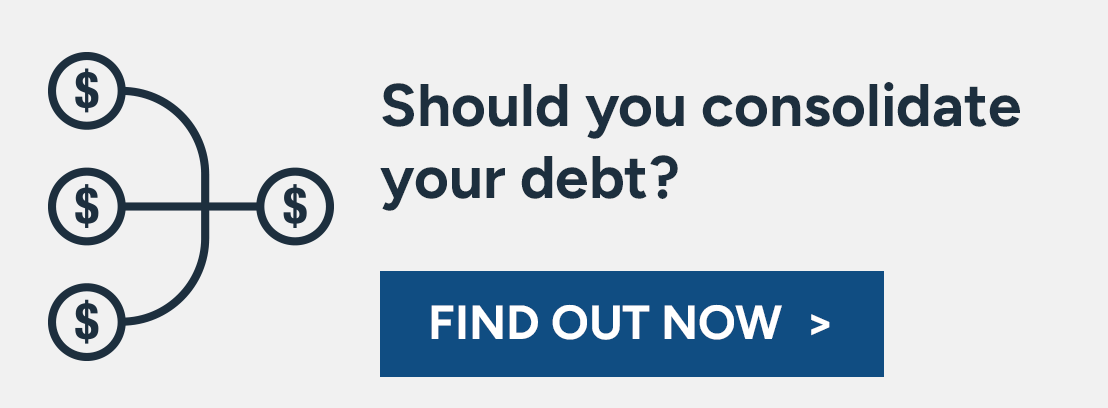What is Consolidation?
Consolidation has several meanings, but these two are the most significant for consumers struggling with financial difficulties:
- The act or process of joining together into one whole.
- The act or process of making firm or secure.
When the word “consolidation” is used from a debt management perspective, it means combining all of your debts into one monthly payment. You’re working toward a secure financial future when you consolidate your credit.
Methods of Credit Consolidation
The most common debt consolidation methods are:
- Consolidation loan – You borrow money to pay off all of your debts. Usually the money comes from a home equity loan, credit line, or personal loan.
- Debt management plan – With these programs, you consolidate bills without borrowing more money. A credit counselor at a non-profit credit counseling agency helps you develop a budget to repay your debts within your financial means and works with your creditors to set up the plan. Usually these plans reduce interest rates and late fees, thereby reducing your monthly payment.
Of these methods, the best way to consolidate debt is the debt management plan. The key to achieving financial freedom is to stop going into debt to repay debt. A debt management plan provides structure, and at American Consumer Credit Counseling (ACCC), our certified credit advisors are there to help you at any time.
A debt management plan is a consolidation plan where you make one monthly payment for all of your unsecured credit card bills. You make the payment directly to ACCC, and we distribute the money to your creditors on your behalf. You have only one monthly debt payment to make, with just one due date, which helps you plan your monthly expenses and adhere to your budget.
Is Consolidation Right for You?
Are you overwhelmed with debt and unsure whether consolidation is right for you? Have you even considered filing for bankruptcy? Bankruptcy should be considered only as a last resort, because the consequences are severe and long-lasting. A bankruptcy stays on your credit report for as long as 10 years, and it can prevent you from getting new credit, an apartment, or even certain jobs.
If you’re feeling the burden of too many bills, contact ACCC today about consolidation. We can help you sort through the options and find a solution that works the best for your financial circumstances.
If you’re seriously considering bankruptcy, ask about our credit counseling for bankruptcy. The current U.S. Bankruptcy Code requires pre-bankruptcy counseling and post-bankruptcy debtor education, and ACCC is approved by the Department of Justice to provide both.




